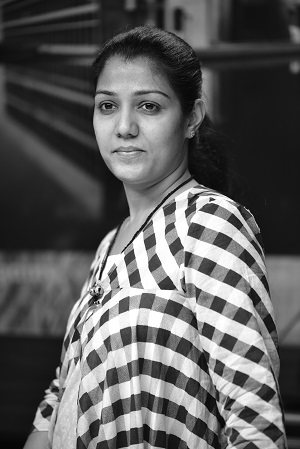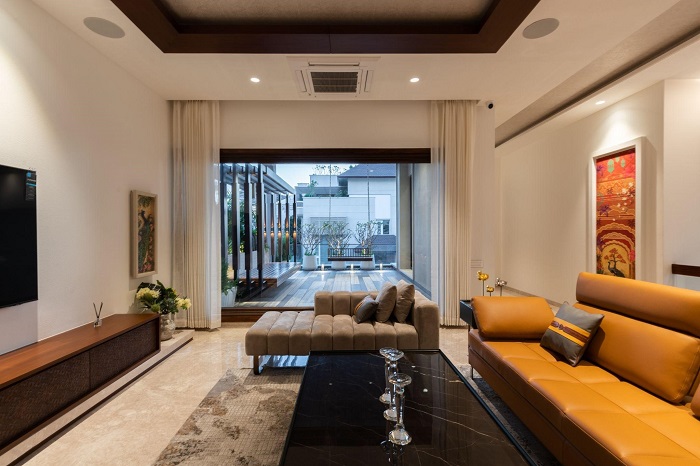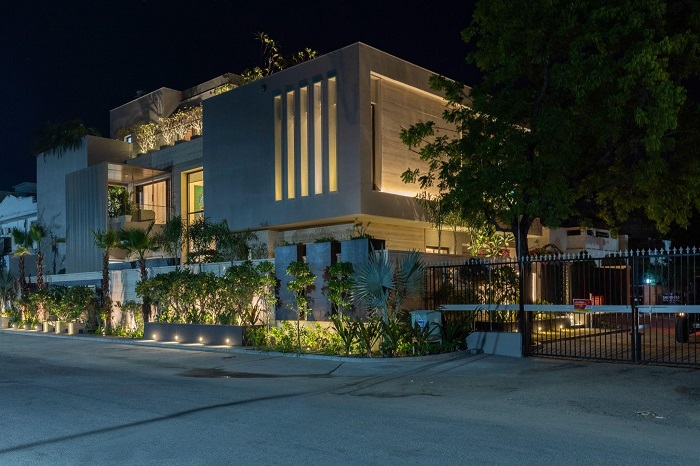Residential architecture is a constantly evolving field, and 2023 is set to bring some exciting new trends to the forefront. From sustainable design to smart home technology, this year’s biggest trends focus on creating homes that are not only aesthetically pleasing but also practical and environmentally responsible. The environment around us strongly influences our well-being, from intimate spaces like our homes to open urban areas. Ar. Ruby Goswamy, Partner & Principal Architect of Design Square, explains how there has been a significant shift towards conscious living in the last ten years and as a result, what architectural themes will be increasingly prominent in 2023.
Sustainable design
With the unprecedented pandemic times and environmental concerns becoming increasingly pressing, sustainable design has become a top priority for many homeowners. Architects are using materials such as bamboo, recycled glass, and low-VOC paints to create homes that are environmentally friendly while also incorporating features like green roofs and walls to reduce the carbon footprint of the homes. The use of energy-efficient systems and appliances, such as solar panels, and increased use of landscape plantations could further reduce energy consumption and the overall impact of the residential design on the environment.

Smart home technology
Smart home technology is revolutionizing how we live in our homes, making them more convenient and efficient. This technology is making life easier and more convenient for homeowners, from smart lighting systems that can be controlled with a single app to security systems that can be monitored from anywhere. In 2023, we can expect even more advanced smart home technologies, including fully automated systems that can be controlled through voice commands or gestures.

Minimalism
Minimalism is a design trend that has been gaining popularity in recent years, and it shows no signs of slowing down in 2023. This style focuses on simplicity, functionality, and clean lines, using neutral color palettes, streamlined furniture, and a focus on the essentials. This trend is popular because it creates a calming and peaceful environment and is perfect for inhabitants who prefer a clutter-free home.
Indoor-outdoor living
As the line between indoor and outdoor living spaces continues to blur, architects are designing homes that seamlessly integrate both environments. This includes large windows and sliding doors, patios, decks, balconies, and other outdoor living spaces that can be used all year round. These elements create a seamless transition between indoor and outdoor spaces, making it easier to enjoy the beauty of the outdoors while still being able to take advantage of the comfort and convenience of indoor living.
The Return of the Craftsmanship
Architecture reintroduces craft into its narrative to sustain artisans, providing identity to the regional flavours of our country and reclaiming a place that was well created centuries ago. The key aspects of this design approach include the use of truthful materials with a focus on their natural attributes, along with the integration of simple forms that glorify and celebrate the creation of the element. Natural-inspired designs, motifs, and patterns, as well as vernacular designs, will also be seen to focus on traditional disciplines and practices.
In conclusion, the most significant residential architecture trends of 2023 reflect a focus on sustainability, convenience, and seamless integration of indoor and outdoor living spaces. Whether you’re looking to build a new home or renovate your existing one, these trends are sure to inspire and guide you in your process of building a home. From sustainable design to smart home technology, the recent trends represent the latest innovations in residential architecture, and they are sure to shape the future of how we live.


